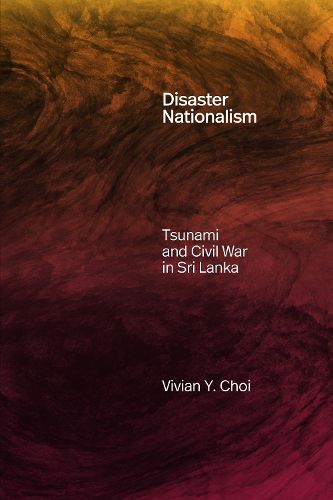Readings Newsletter
Become a Readings Member to make your shopping experience even easier.
Sign in or sign up for free!
You’re not far away from qualifying for FREE standard shipping within Australia
You’ve qualified for FREE standard shipping within Australia
The cart is loading…






In Disaster Nationalism, Vivian Y. Choi examines how the 2004 Indian Ocean tsunami fostered new forms of governance and militarization during Sri Lanka's decades-long civil war that led to enduring forms of precarity and insecurity. Tracing the development of disaster management projects following the tsunami, Choi demonstrates how these projects rest on a logic that treats natural disasters and terrorism as inevitable risks in need of management. The tsunami's destruction foreclosed the possibility of political resolution to the war, as the state leveraged these projects to justify its militarized aggression in the war against the Tamil Tigers and a new construction of the Sri Lankan nation. Choi reveals how, paradoxically, state-sponsored disaster management projects-from new buffer and border zones to early warning systems-created more insecurity. Choi amplifies the experiences of those affected by the tsunami, particularly Tamil and Muslim communities. In so doing, Choi shows how life perseveres against perpetual uncertainty and danger-caused by natural disasters and state-sanctioned violence alike.
$9.00 standard shipping within Australia
FREE standard shipping within Australia for orders over $100.00
Express & International shipping calculated at checkout
In Disaster Nationalism, Vivian Y. Choi examines how the 2004 Indian Ocean tsunami fostered new forms of governance and militarization during Sri Lanka's decades-long civil war that led to enduring forms of precarity and insecurity. Tracing the development of disaster management projects following the tsunami, Choi demonstrates how these projects rest on a logic that treats natural disasters and terrorism as inevitable risks in need of management. The tsunami's destruction foreclosed the possibility of political resolution to the war, as the state leveraged these projects to justify its militarized aggression in the war against the Tamil Tigers and a new construction of the Sri Lankan nation. Choi reveals how, paradoxically, state-sponsored disaster management projects-from new buffer and border zones to early warning systems-created more insecurity. Choi amplifies the experiences of those affected by the tsunami, particularly Tamil and Muslim communities. In so doing, Choi shows how life perseveres against perpetual uncertainty and danger-caused by natural disasters and state-sanctioned violence alike.